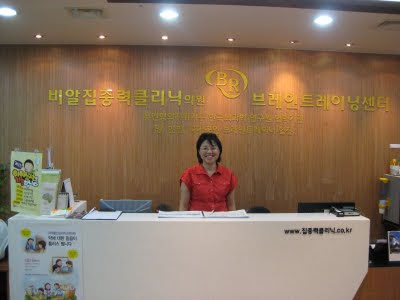It is now over a year after I graduated from UBE with a PhD in Brain Education (February 2013). I thought it would be a good time to finish this blog now. :)
The picture above is of me and my good friend in South Korea. She and her daughter helped me pack up my stuff, settle things with my landlord, and sent me off on the bus to the airport. I'm having my "last supper" (or lunch :) in Korea at Lotteria (like Korean McDonald's, but not like McDonald's).
It has been quite the experience to be back "home", where I can really say I feel like a foreigner again. It's so funny to me that after about five years of being in Korea, I found a way to fit in (even if I stood out) and then when I came back home, I really felt like I was a foreigner all over again. My brain, including my ways of thinking and seeing and responding to the world, literally changed.
For me, this is a reflection of what I learned from my journey with Brain Education. For those who may not know, Brain Education is an experiential education approach designed to foster the development and effective management of the brain's unlimited potential and ability to create health, happiness, and peace for individuals and collectively. Brain Education is also a field of study focused on researching and developing theory and methods for the wholistic development of brain potential that integrate theory and practice from fields such as brain science, neuroscience, physiology, kinesiology, and nutritional science.
At the individual level, for me, my journey with Brain Education was really about becoming more conscious of the value and power of my brain--to notice how I thought, felt, sensed, and responded to the world based on the biology of my brain and on my experiences and programming, and then to choose what I wanted to do with that. My experience in South Korea was a good example of this. So many things here challenged me and were so different than what I would have experienced in my environment at home, that I really got to notice and meet different parts of myself and my brain. It was definitely a life-changing experience and a gift.
I learned a lot about myself through my journey with Brain Education and the impact of my experiences in Korea contributed to changes that were already occurring in me. Because of those changes, I've decided to not continue with my plans for Brain Education and to take time for myself and for my husband right now.
I am very grateful to all I met on my Brain Education journey--the members and staff of the former Dahn Yoga Centers in Canada; Ilchi Lee, the President of IBREA and UBE; the staff at IBREA, BRC, BE, Dahn Yoga, Sun Tao, and other affiliates in the U.S. and Korea; the staff and students at UBE; and all of the people in Korea I met--those who were kind to me and those who challenged me. Through my connecting with all of you, I learned something about myself and I am thankful for that.





































.jpg)


















